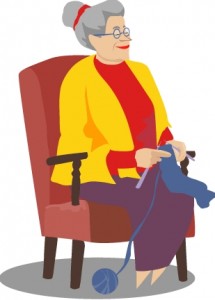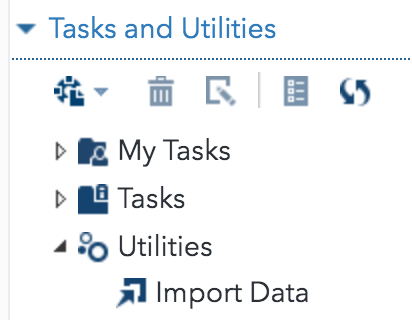Lessons from Life: 1> Your children don’t think you’re human
Your mileage may vary, your life may vary, but there are a few lessons worth learning . As a public service, I have decided to share with you things I thought I knew but was initially wrong about.
- Your children don’t actually consider you a person until they are nearly 30 (if ever).
 Many years ago, when teaching adolescent psychology, I remember the textbook author saying that most people really don’t consider their parents as people until they are in their thirties. At the time, my children were very young, and I thought that was just a ludicrous statement. Now, I’m pretty sure that he was right. I can’t tell you the number of young adults I have seen treating their parents in ways that they would never treat anyone else. Doubt me? Consider an adult in his/ her twenties whose parent is paying part (or all) of their rent. I know plenty of people in this situation, some are employed but ‘want to live somewhere nicer’ than they can afford. Others want to ‘follow my dream’. Those same young adults would never expect their friend, boss or co-worker to pay their rent – because, well, why the hell would another person who doesn’t live with you support you? Maybe that other adult (your parent) has a dream to travel the world or open a knitting school or spend all their money on cheap women and expensive whiskey.
Many years ago, when teaching adolescent psychology, I remember the textbook author saying that most people really don’t consider their parents as people until they are in their thirties. At the time, my children were very young, and I thought that was just a ludicrous statement. Now, I’m pretty sure that he was right. I can’t tell you the number of young adults I have seen treating their parents in ways that they would never treat anyone else. Doubt me? Consider an adult in his/ her twenties whose parent is paying part (or all) of their rent. I know plenty of people in this situation, some are employed but ‘want to live somewhere nicer’ than they can afford. Others want to ‘follow my dream’. Those same young adults would never expect their friend, boss or co-worker to pay their rent – because, well, why the hell would another person who doesn’t live with you support you? Maybe that other adult (your parent) has a dream to travel the world or open a knitting school or spend all their money on cheap women and expensive whiskey.
(For those who wonder if this is personal, I would like to note that all of my children are self-supporting except for the one in high school, and I have no interest in spending my money on cheap women – or knitting schools. I do like expensive whiskey.)
Speaking of personal, though, lesson number one was brought home to me recently when I was complaining to The Perfect Jennifer about something stupid and unimportant, like having to walk down to the bank to deposit a check. I apologized for rambling on and made a comment about being a complainer and she corrected me,
“No, Mom, really you’re not. You never complain about the things like having to take care of three kids by yourself after Dad died, while starting a company at the same time. I’ll bet that was hard. It sounds really hard.”
She was 29.
This is the first time any of my children actually acknowledged that it was difficult for me, too. I have to say, that made my day. It WAS hard. A friend of mine lost her father when she was in high school, and she was telling me that it wasn’t until she was in her forties and had her own children in high school that she thought about all of the things her husband does and how hard it would be to take care of everything without him.
My point isn’t that their father’s death wasn’t unbelievably hard on the children, nor that I expected them to feel sorry for me when they were little kids. It is simply this, as children, everyone sees their parents primarily in terms of fulfilling their own needs, basically in terms of how they can use them. Children see the world as centered around them.
We often don’t consider our parents as actual adult humans with their own feelings, aspirations, difficulties, strengths and weaknesses until we become adults ourselves. Sometimes, not even then.
—– Want to learn even more ?
Check out my day job – adventure games that teach math and Native American history
Play yourself, buy it for your children (however they think about you!)


Great insight with a hint of humor… I’m pretty sure you relied on a great sense of humor to get through the tough times.
I enjoy reading your blog. You’re inspirational.. I’m hooked. We need more people like you in this world of blah and phony. Continue keeping it real and all those good things you do.
p.s. I’m interested in finding out more about your parents, specifically your mom.. Of course, if you’re open to it. I’m all ears. Or eyes, whatever hahah.
Thanks for this! As someone with younger kids, this is a good reminder that just because they don’t show much empathy appreciativeness toward their parents, it doesn’t mean they are destined to become sociopaths. As parents, we will keep trying to develop their sense of appreciation for all that is done for them by us and others, knowing at the same time that it may take years for them to fully recognize all they have been given.
There is so much truth to this. I’m somewhat horrified by my ignorance in my teens and early adulthood in regard to how difficult things must have been for my mother and how much she did for us. I most certainly appreciate it now.
I’ve said the same thing: that you don’t appreciate your parents as adults until you are an adult yourself. You tweaked it by adding the age 30. Spot on.
The right order of things, as I’m finding out as an adult child of an alcoholic, is that children SHOULD be the center. Adult children of alcoholics (or dysfunctional homes) mostly did not see themselves as the center. I pivoted completely around my mother’s depression and alcohol use. I learned to survive in a chaos. It’s made being an adult tough.
I wish I could have had you as a mother! I’m gushing, but it’s true. I love your blog. Love your interviews, too. The way you put things together. 2 + 2 = 4. Sounds simple, eh? Not for all of us. Pls write a book on motherhood. It’d be good to see you on the book circuit. I’ll buy an advanced copy. You sign it when you’re in NYC. Hugs, Dave
Very true. I enjoy your thoughts on life and what you have learned. Keep them coming!